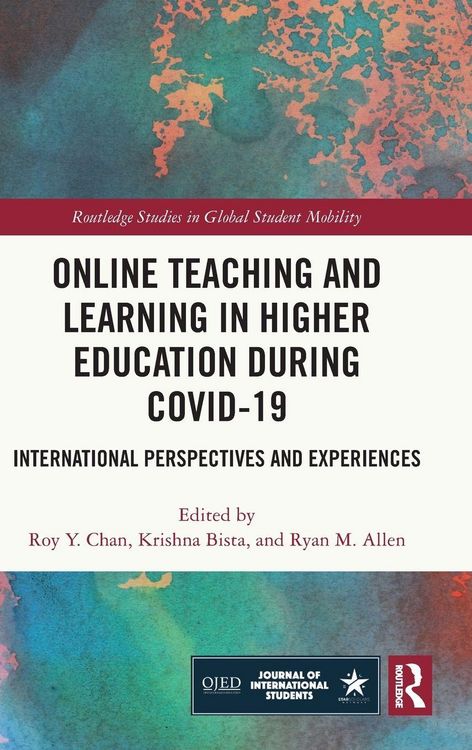- Is Online and Distance Learning the Future in Global Higher Education? The Faculty Perspectives during COVID-19
Roy Y. Chan, Krishna Bista, and Ryan M. Allen
PART I: Innovative Forms of Online Teaching, Learning, and Assessment during COVID-19
- Designing Authentic Online Courses Intra- and Post-Pandemic
Michelle Rippy and Monica Munoz
- Pandemic Pedagogy: Disparity in University Remote Teaching Effectiveness
Linda Dam
- Learning Management Systems and Synchronous Communication Tools: Enablers of Online Education During COVID-19
Darren Turnbull, Ritesh Chugh, and Jo Luck
- Online Teaching and Learning During COVID-19: Flexible Harmonies in Higher Education
Dawn Joseph, Rohan Nethsinghe, and Alberto Cabedo-Mas
- The Effectiveness of Authentic Assessments during COVID-19: A Case of RMIT University in Vietnam
Huy Pham, Binh Nguyen Thanh, Thai Vu Hong Nguyen, and Upasana Jain
PART II: Impacts of Distance Education on Students, Social Inclusion, and Access during COVID-19
- Life in 280 Characters: Social Media, Belonging, and Community during the COVID-19 Pandemic
Jack Reed and Catherine Dunn
- "The Course is no Longer Great": The Need for Socially Meaningful Online Instruction for International Students
Vander Tavares
- Expanding Equitable Access or Exacerbating Existing Barriers? Re-Examining Online Learning for Vulnerable Student Populations
Romana Manzoor and Wayne Bart
- Using Information Communication Technologies for Interactive Open and Distance Learning Experiences in the Era of COVID-19
Mmabaledi Seeletso
- Suddenly Online: How Russian Students Switched to Distance Learning During the COVID-19 Pandemic
Ivan Gruzdev, Evgeniia Shmeleva, Raman Kalinin, and Kseniia Vilkova
PART III: COVID-19 as a Catalyst of Change – Lessons for the Longer-term
- Could COVID-19 be a Catalyst for Disruption in Higher Education?
Raffaella Borasi, Richard DeMartino, Nathan Harris, and Dave Miller
- Global Higher Education and COVID-19: A Virtual Autoethnography Experience from a Faculty
Anatoly Oleksiyenko
- Sustaining Liberal Education by Online Learning in the Era of Global Crises: The Case of Community Colleges in COVID-19 Hong Kong
Hei-hang Hayes Tang, Beatrice Y. Y. Dang, Rosalind Latiner Raby, and Joanna W. Y. Yeung
- Students’ Experiences with Distance Learning under COVID-19: Critical Perspectives from an Indian University
Mousumi Mukherjee, Tatiana Belousova, and Deepak Maun
- Teacher Education in Times of Disruption: Lessons Learned from Teaching and Learning in Australian Universities During the COVID-19 Pandemic
Eden C. Stephens and Jen Scott Curwood
- The Expansion of E-learning in the UAE: Implications and Opportunities in the Post-COVID-19 Era
Shytance Wren
